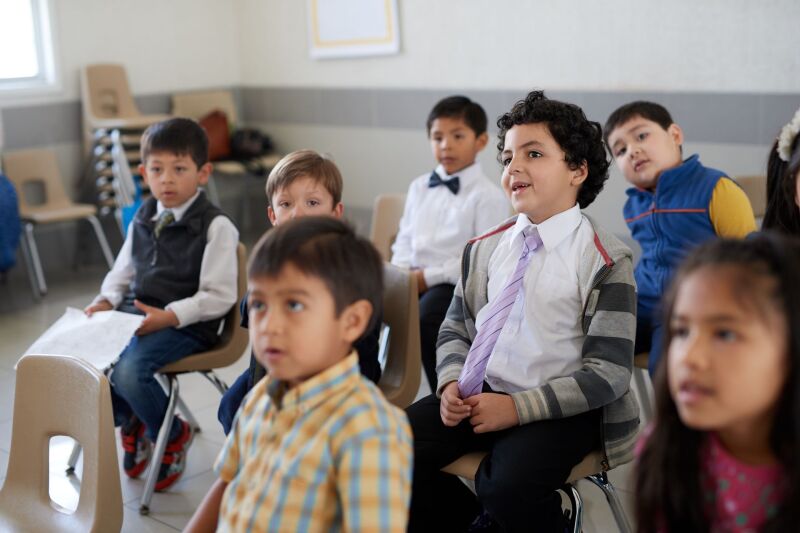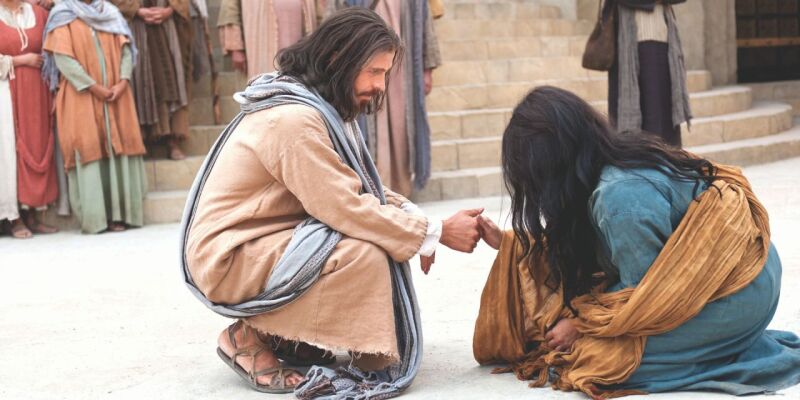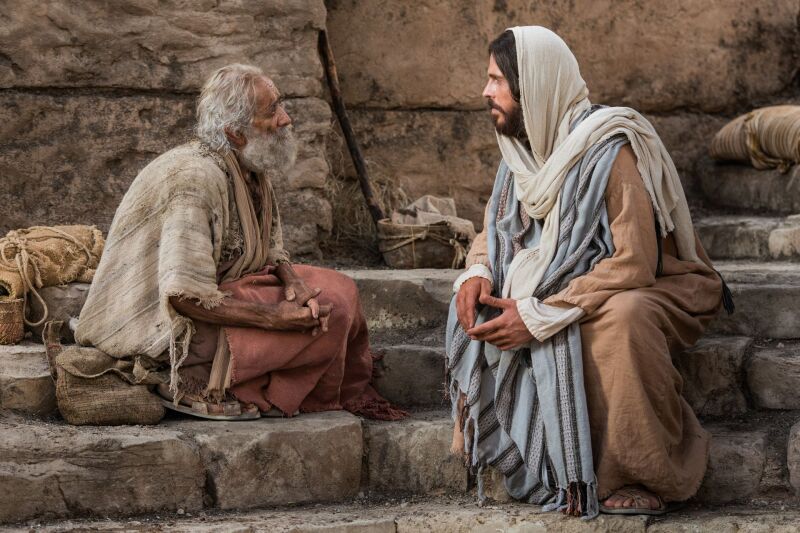
Many of us probably remember the song from Primary that starts, “If you don’t walk as most people do, some people walk away from you. But I won’t. I won’t.” Accompanied in the Primary Children’s Songbook by a beautiful watercolor image of a girl in a wheelchair, it is easy to believe that this song is only about accepting and loving those who have physical differences from us.
But after some recent division among Primary choristers in several Facebook groups over whether or not they like the song as traditionally interpreted, I began thinking about its message in a new way—a way that reminded me a lot of President Nelson’s April 2023 talk “Peacemakers Needed” and that was reiterated to me in the October 2023 conference by Elder Christophe G. Giraud-Carrier and Elder Ulisses Soares.
In all of these talks, we are reminded of the universal truth that we are all children of God and that we need to treat everyone with love and respect, no matter how their opinions or ideas may differ from our own. So while teaching about loving those with physical differences is very important, I think we limit ourselves and the children when that is the only interpretation we give to “I’ll Walk with You.” Let’s go through the song and expand its meaning.
“If you don’t walk as most people do, some people walk away from you, but I won’t!”
It’s easy to think of this line as referring to those who might use wheelchairs or have a physical difference with their legs. But thinking of this figuratively, we all walk different paths. What if we thought of this line more like, “If you choose a different path than me in the gospel or in the world, some people will stop being your friend, ignore, criticize, or patronize you. But I won’t.”
President Nelson put it this way in “Peacemakers Needed”:
“Anger never persuades. Hostility builds no one. Contention never leads to inspired solutions. Regrettably, we sometimes see contentious behavior even within our own ranks. . . . My dear brothers and sisters, this should not be. As disciples of Jesus Christ, we are to be examples of how to interact with others—especially when we have differences of opinion. One of the easiest ways to identify a true follower of Jesus Christ is how compassionately that person treats other people.”
Elder Soares shared a similar reminder of the importance of valuing those who live differently from us:
“I have deep compassion for those who have been mistreated, belittled, or persecuted by unfeeling and thoughtless people, because, in the course of my life, I have seen firsthand the pain good people suffer from being judged or dismissed because they happened to speak, look, or live differently. I also feel genuine sorrow in my heart for those whose minds remain darkened, whose vision is limited, and whose hearts remain hardened by the belief in the inferiority of those who are different from them. Their limited view of others actually obstructs their ability to see who they are as children of God.”

“If you don’t talk as most people do, some people talk and laugh at you, but I won’t!”
This line can refer to so many things! While some have speech impediments, others speak different languages, share thoughts and opinions that are different from the popular ones, or express themselves differently than others. How often do we see others make comments along the lines of, “You are ridiculous to believe that!” or “I can’t believe you actually said that, you are so dumb!” Mocking, ridiculing, accusing, or name-calling are all ways of “laughing” at others.
I love President Nelson’s reminder on this front: “If a friend on social media has strong political or social views that violate everything you believe in, an angry, cutting retort by you will not help. Building bridges of understanding will require much more of you, but that is exactly what your friend needs.”
Elder Giraud-Carrier shared a slightly different version of the same reminder:
“Our family has been privileged to live in different countries and cultures; our children have been blessed to marry within different ethnicities. I have come to realize that the gospel of Jesus Christ is the great equalizer. As we truly embrace it, ‘the Spirit itself beareth witness with our spirit, that we are the children of God.’”
“I’ll walk with you. I’ll talk with you. That’s how I’ll show my love for you.”
Whether we are physically walking and talking with someone or interacting with them virtually, are we making space for others and learning to love them? Are we taking time to listen to those whose opinions or ways of understanding the gospel might be different than ours? We can take time to listen to and love someone working through a faith crisis, facing a personal trial, or dealing with any other challenge.
President Nelson reminds us:
“If a couple in your ward gets divorced, or a young missionary returns home early, or a teenager doubts his testimony, they do not need your judgment. They need to experience the pure love of Jesus Christ reflected in your words and actions. … Brothers and sisters, we can literally change the world—one person and one interaction at a time. How? By modeling how to manage honest differences of opinion with mutual respect and dignified dialogue.”

“Jesus walked away from none. He gave his love to everyone. So I will!"
Jesus didn’t just heal and bless those with physical infirmities. Think about the woman at the well. She didn’t have leprosy. She wasn’t blind, sick, or dying. Christ loved and healed many people who had physical differences, but He also loved and helped those who had different beliefs and lifestyles.
Elder Soares described it this way:
“During His earthly ministry, Jesus so perfectly exemplified this principle [of treating our fellow beings with respect and dignity and as true brothers and sisters in Christ] as He ‘went about doing good’ unto all people, inviting them to come unto Him and partake of His goodness regardless of their origin, social class, or cultural characteristics. He ministered, healed, and was always attentive to everyone’s needs, especially those who at the time were considered different, belittled, or excluded. He denied none but treated them with equity and love, for He saw them as His brothers and sisters, sons and daughters of the same Father.”
It is this love that President Nelson emphasized in “Peacemakers Needed”:
“Brothers and sisters, the pure love of Christ is the answer to the contention that ails us today. Charity propels us ‘to bear one another’s burdens’ rather than heap burdens upon each other.”

“Jesus blessed all He could see, then turned and said, ‘Come, follow me.’ And I will!”
Though this line is very similar to the one above, I think it is worth pointing out the different interpretations of the word “see.” Christ was very good at physically seeing those whose physical infirmities left them overlooked and suffering. But He was also good at seeing people spiritually. We may not be able to physically follow our Savior like those who lived with Him, but we can follow Him by “seeing” the emotional and spiritual needs of those around us.
Elder Giraud-Carrier expressed this thought wonderfully:
“When the scribes and the Pharisees saw the woman taken in adultery, what did they see? A depraved woman, a sinner worthy of death. When Jesus saw her, what did He see? A woman who had temporarily succumbed to the weakness of the flesh but could be reclaimed through repentance and His Atonement. When people saw the centurion whose servant was sick with palsy, what did they see? Perhaps they saw an intruder, a foreigner, one to be despised. When Jesus saw him, what did He see? A man concerned for the welfare of a member of his household, who sought the Lord in candor and faith. …
“In every case, the Lord saw these individuals for who they were and accordingly ministered to each one. … May we likewise not let our eyes, our ears, or our fears mislead us but open our hearts and minds and minister freely to those around us as He did.”

“I’ll walk with you. I’ll talk with you. That’s how I’ll show my love for you.”
Circling back, how can we metaphorically walk and talk with those who live and think differently from us? How can we love others the way Christ does? Elder Soares offers this final thought to help us in this quest:
“The world in general is polarized by strong divisions, accentuated by racial, political, and socioeconomic lines. Such divisions sometimes end up influencing people’s way of thinking and acting in relation to their fellow beings. For this reason, it is not uncommon to see people characterizing the way of thinking, acting, and speaking of other cultures, races, and ethnicities as inferior, making use of preconceived, mistaken, and often sarcastic ideas, generating attitudes of contempt, indifference, disrespect, and even prejudice against them. … As sons and daughters of the covenant, we can help to eliminate this kind of behavior by looking at the apparent differences that exist between us with the Savior’s eyes and based on what we have in common—our divine identity and kinship.”
The more I listen to this beautiful song, the more I love it. I still think it is an important reminder to love and treat kindly those with physical differences from us, but just as significantly, it can teach and remind children and all of us how to treat those who are figuratively different—with Christlike love.
▶You may also like: 4 easy ways to help your child get the most out of Primary

